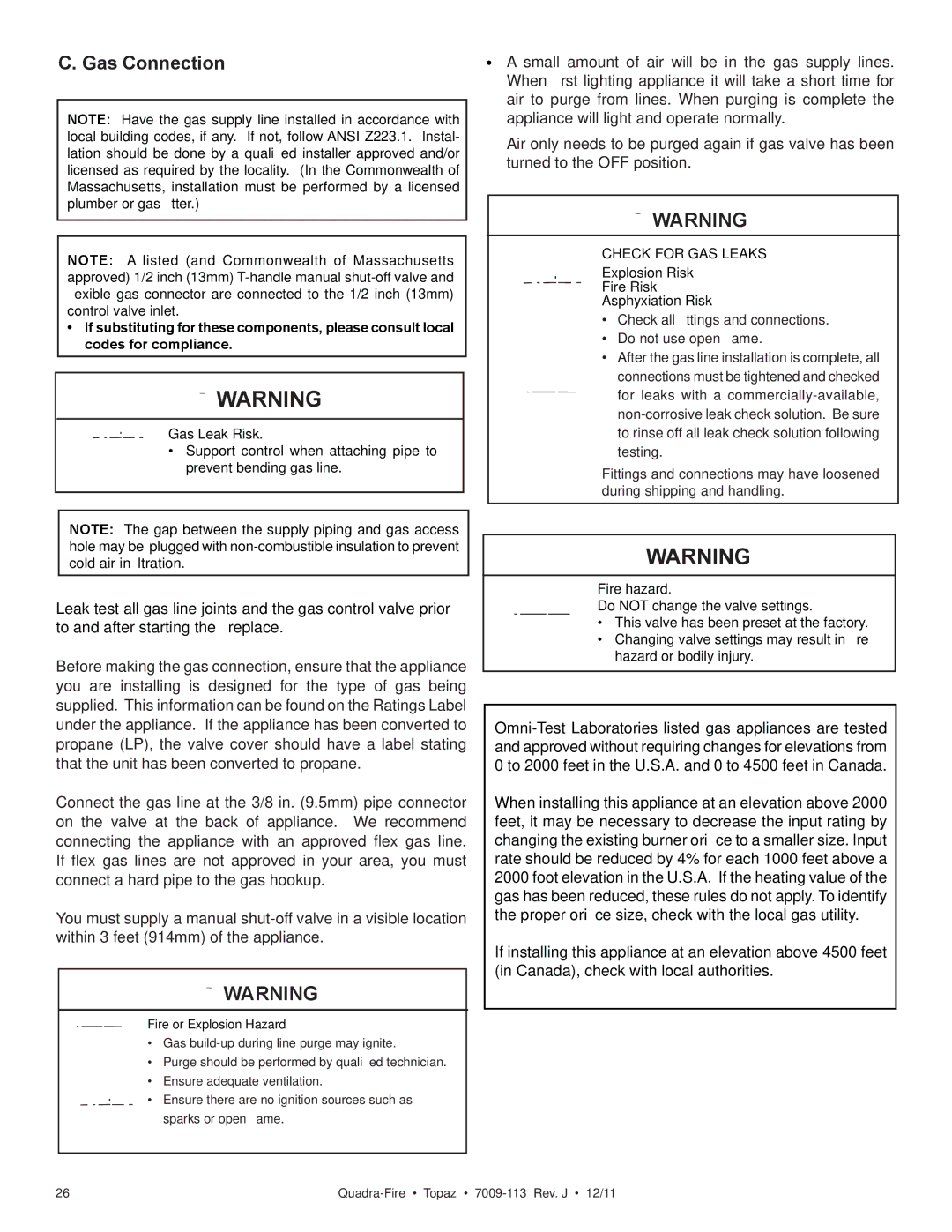
C. Gas Connection
NOTE: Have the gas supply line installed in accordance with local building codes, if any. If not, follow ANSI Z223.1. Instal- lation should be done by a qualified installer approved and/or licensed as required by the locality. (In the Commonwealth of Massachusetts, installation must be performed by a licensed plumber or gas fitter.)
NOTE: A listed (and Commonwealth of Massachusetts approved) 1/2 inch (13mm)
•If substituting for these components, please consult local codes for compliance.
![]() WARNING
WARNING
Gas Leak Risk.
•Support control when attaching pipe to prevent bending gas line.
NOTE: The gap between the supply piping and gas access hole may be plugged with
Leak test all gas line joints and the gas control valve prior to and after starting the fireplace.
Before making the gas connection, ensure that the appliance you are installing is designed for the type of gas being supplied. This information can be found on the Ratings Label under the appliance. If the appliance has been converted to propane (LP), the valve cover should have a label stating that the unit has been converted to propane.
Connect the gas line at the 3/8 in. (9.5mm) pipe connector on the valve at the back of appliance. We recommend connecting the appliance with an approved flex gas line. If flex gas lines are not approved in your area, you must connect a hard pipe to the gas hookup.
You must supply a manual
![]() WARNING
WARNING
Fire or Explosion Hazard
•Gas
•Purge should be performed by qualified technician.
•Ensure adequate ventilation.
•Ensure there are no ignition sources such as sparks or open flame.
•A small amount of air will be in the gas supply lines. When first lighting appliance it will take a short time for air to purge from lines. When purging is complete the appliance will light and operate normally.
Air only needs to be purged again if gas valve has been turned to the OFF position.
![]() WARNING
WARNING
CHECK FOR GAS LEAKS
Explosion Risk
Fire Risk
Asphyxiation Risk
•Check all fittings and connections.
•Do not use open flame.
•After the gas line installation is complete, all connections must be tightened and checked for leaks with a
Fittings and connections may have loosened during shipping and handling.
![]() WARNING
WARNING
Fire hazard.
Do NOT change the valve settings.
•This valve has been preset at the factory.
•Changing valve settings may result in fire hazard or bodily injury.
When installing this appliance at an elevation above 2000 feet, it may be necessary to decrease the input rating by changing the existing burner orifice to a smaller size. Input rate should be reduced by 4% for each 1000 feet above a 2000 foot elevation in the U.S.A. If the heating value of the gas has been reduced, these rules do not apply. To identify the proper orifice size, check with the local gas utility.
If installing this appliance at an elevation above 4500 feet (in Canada), check with local authorities.
26 |
